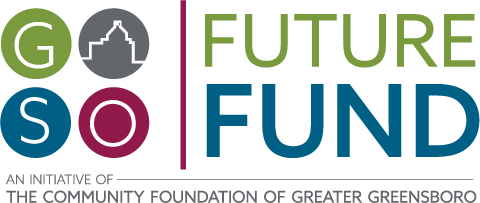Email me
Meet Evainna W. Ross
The Black Suit Initiative (The Sparrow's Nest, Inc.)
“Undeniable Greatness Ahead”
How did your organization start?
In 2008, The Sparrow's Nest, Inc. was a mobile service providing free educational and cultural arts activities to school aged children living in 4 of the city's largest public housing communities. The program provided activities for several hundred children each month. In an effort to have sustainable outcomes, the program evolved into The Chosen 50. This leadership and community engagement program allowed middle and high school students the opportunity to apply and interview for one of the 50 membership positions. The program, which met on most Saturdays throughout the year, was developed to engage youth in leadership initiatives in an effort to prevent crime and drug activity and develop educational, artistic and character building skills to better prepare them for their transition to college or career.
In 2015 there was a noticeable increase in gang affiliation in Greensboro involving young, Black males. The program utilized current members in The Chosen 50, to conduct a in-depth surveys and extensive research in high crime areas to develop a new, all-male initiative. In 2016, the successful co-ed program, The Chosen 50, evolved into the all-male program, The Black Suit Initiative. The program was strategically marketing to engage those from the under-served communities we surveyed.
This leadership and community engagement program allows young men in middle and high school, the opportunity to improve academic performance, explore their career interests and participate in positive team building exercises. The successful completion of program modules allows these young men the opportunity to earn their own full black suit at the completion of the first year. Young men can remain in the program until they graduate from high school and suits are replaced as needed. The suit closet is always available to graduate members as needed.
What issue are you addressing?
In the most recent census analysis, based upon 20 million children and their parents , Black boys are the least likely group to climb out of poverty and most likely to fall into it. Young Black men also face a higher rate of imprisonment, have the highest rate of unemployment, and have a greater chance of being murdered. Without the diversionary tactics of leadership/mentorship programs, life in America could hold little promise for Black males.
Where did your passion for this cause come from?
As we surveyed young men in some of Greensboro's under-served, high crime areas, we had the opportunity to interview gang members and high school drop outs. If we were going to develop a program to prevent criminal activity, we needed to speak to those "we lost". What could we as a community have done to have prevented them from exploring these devastating options. These young men jumped at the opportunity to have someone listen to their plight. What resonated in their responses was their lack of access to successful men who could share their wisdom on how to be successful. To them, the race of the individual didn't matter, but the ability to have a man-to- man discussion on how to achieve their goals in life was most important. They especially wanted to hear from men who had humble beginnings, but were able to achieve the pinnacle of success.
In addition to career guidance, they were interested in investing, fashion, entrepreneurship, cultural arts, and health. The vast insight we gained from them helped us develop our unique curriculum.
Why is your work so important for Greensboro?
In 2015, we surveyed 61 middle and high school Black males and asked them to name someone they considered to be a positive, Black, male role model in their lives. Nearly 70% of those surveyed could not name one person. In the United States, over 4 million Black children are growing up in a female head of household.
Students surveyed felt their socioeconomic status limited their access to learning about jobs other than low wage positions. Most recognized the necessity to start at a lower paying job, but didn't grasp how to advance in a company and possibly one day operate their own business.
We offer young men with opportunities to discover various career paths in their realm of their subject interest and pair them with mentors to assist them in achieving their goals. Providing them with these resources prepares them for path for success, which in turn assists them in breaking cyclical poverty.
Our work is also important because we are providing these young men with leadership skills which are equipping them to be mentors to young men now. Our high school students serve as role models and mentors to our younger students. Our graduates return and serve as mentors because they recognize the importance of these students seeing young men, not much older than they are, making an impact in college and/or career.
What are you most excited for as it relates to FF10?
The opportunity to have a platform to share our story is most exciting. Nonprofits don't always have the luxury of large marketing budgets, so being given the opportunity to share our work and brag about the successes of the people we serve is most exciting.
What have you already learned from the process?
Sometimes we are so entrenched in our own mission, that we don't always stop to examine the other valuable resources other nonprofit organizations offer, which could be of benefit to the clients we serve. It's great to network and learn successful techniques from my peers as well as our coaches.
What do you hope to get out of FF10?
Although I annually present to various organizations throughout the year, I dread the process. I'm looking forward to gaining new presentation techniques to help me overcome the "discomfort" of presenting to a large audience. I also believe this event will provide us with new donors and volunteers. It will also engage people to want to learn more and share our message with others.

